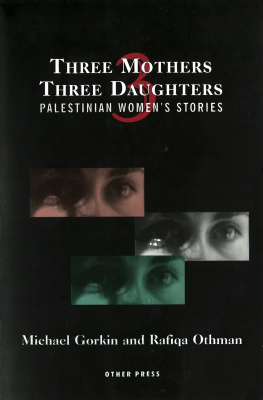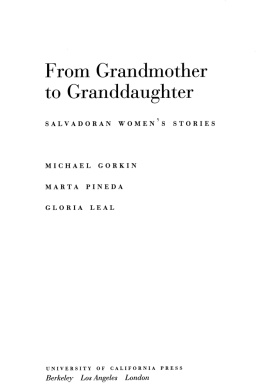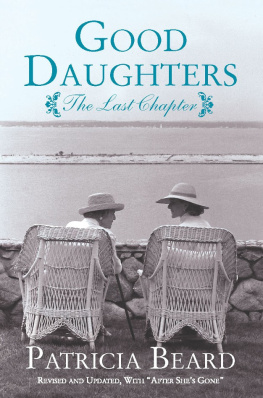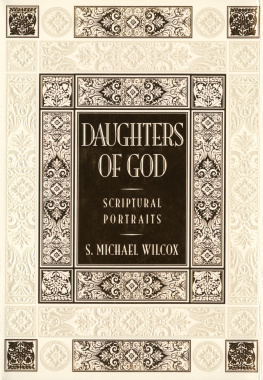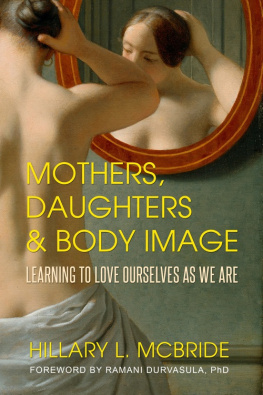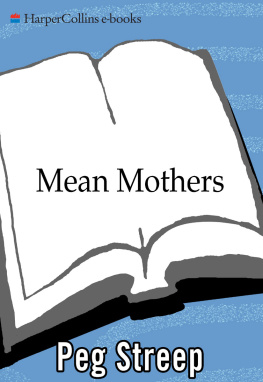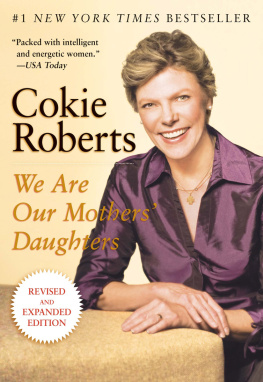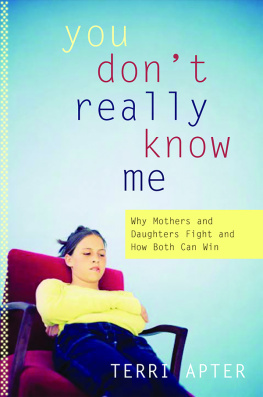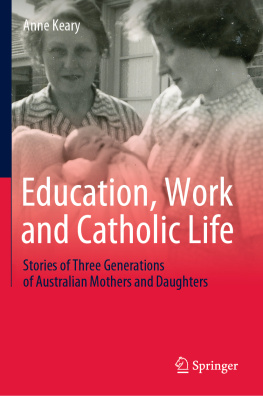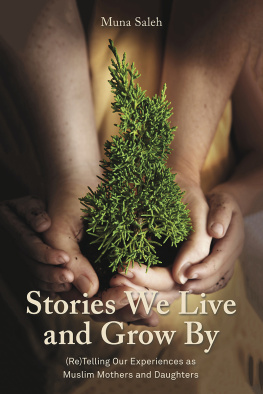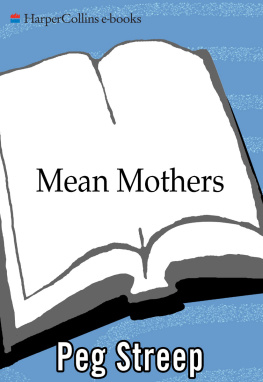Michael Gorkin - Three mothers, three daughters : Palestinian womens stories
Here you can read online Michael Gorkin - Three mothers, three daughters : Palestinian womens stories full text of the book (entire story) in english for free. Download pdf and epub, get meaning, cover and reviews about this ebook. year: 2000, genre: Home and family. Description of the work, (preface) as well as reviews are available. Best literature library LitArk.com created for fans of good reading and offers a wide selection of genres:
Romance novel
Science fiction
Adventure
Detective
Science
History
Home and family
Prose
Art
Politics
Computer
Non-fiction
Religion
Business
Children
Humor
Choose a favorite category and find really read worthwhile books. Enjoy immersion in the world of imagination, feel the emotions of the characters or learn something new for yourself, make an fascinating discovery.
- Book:Three mothers, three daughters : Palestinian womens stories
- Author:
- Genre:
- Year:2000
- Rating:4 / 5
- Favourites:Add to favourites
- Your mark:
- 80
- 1
- 2
- 3
- 4
- 5
Three mothers, three daughters : Palestinian womens stories: summary, description and annotation
We offer to read an annotation, description, summary or preface (depends on what the author of the book "Three mothers, three daughters : Palestinian womens stories" wrote himself). If you haven't found the necessary information about the book — write in the comments, we will try to find it.
Three mothers, three daughters : Palestinian womens stories — read online for free the complete book (whole text) full work
Below is the text of the book, divided by pages. System saving the place of the last page read, allows you to conveniently read the book "Three mothers, three daughters : Palestinian womens stories" online for free, without having to search again every time where you left off. Put a bookmark, and you can go to the page where you finished reading at any time.
Font size:
Interval:
Bookmark:
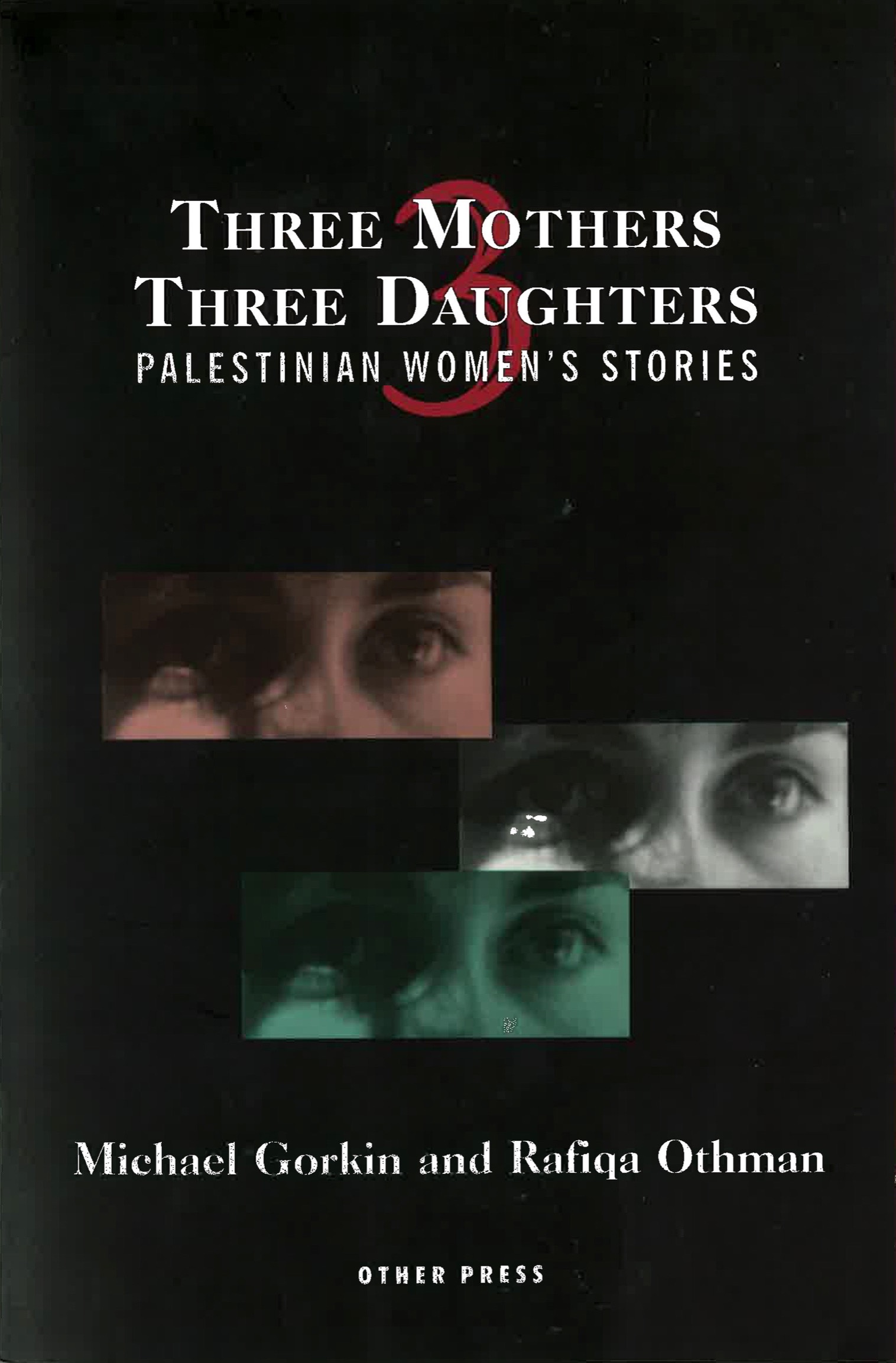
C ULTURAL S TUDIES
A series of books edited by Samir Dayal
Crisis of the European Subject
Julia Kristeva
Three Mothers, Three Daughters:
Palestinian Womens Stories
Michael Gorkin and Rafiqa Othman
Sunlight and Shadow:
The Jewish Experience of Islam
Lucien Gubbay
Don Juans Wager
Franoise Rachline
Textures of Time: Writing History
in South India 16001800
Velcheru Narayana Rao, David Shulman,
and Sanjay Subrahmanyam
The Puerto Rican Syndrome
Patricia Gherovici
Belief in Dialogue:
U.S. Latina Writers Confront
Their Religious Heritage
B. Marie Christian
Resisting Arrest:
Detective Fiction and Popular Culture
Robert A. Rushing
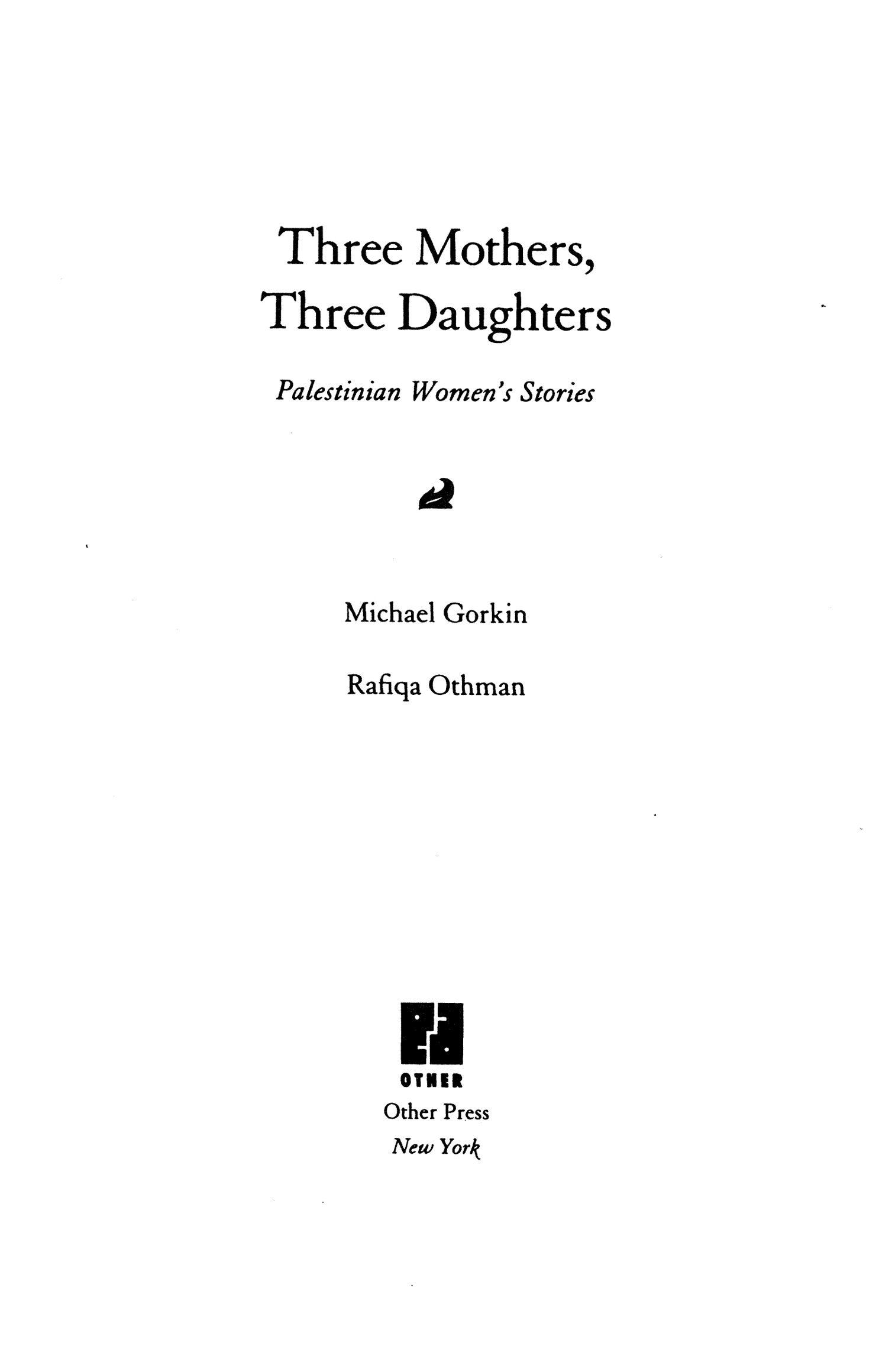
First softcover printing, 2000.
Produced by arrangement with the University of California Press.
Copyright 1996 by Michael Gorkin and Rafiqa Othman.
Ebook ISBN9781635421514
All rights reserved. No part of this publication may be reproduced or transmitted in any form or by any means, electronic or mechanical, including photocopying, recording, or by any information storage and retrieval system, without written permission from Other Press LLC, except in the case of brief quotations in reviews for inclusion in a magazine, newspaper, or broadcast. For information write to Other Press LLC, 267 Fifth Avenue, 6th Floor, New York, NY 10016. Or visit our Web site: www.otherpress.com.
The Library of Congress has cataloged the printed edition as follows:
Gorkin, Michael.
Three mothers, three daughters : Palestinian womens stories / Michael Gorkin, Raqa Othman.
p. cm.
Originally published: Berkeley : University of California Press, c1996.
Includes bibliographical references and index.
ISBN 978-1892746450 (SC)
1. Women, Palestinian ArabWest BankSocial conditions. 2. Women, Palestinian ArabWest BankInterviews. 3. Jewish-Arab relations. 4. Women, Palestinian ArabWest BankAttitudes.
I. Othman, Raqa, 1959 II. Title.
HQ1728.5 .G67 2000
305.4889274056953dc21
00027880
a_prh_5.6.1_c0_r0
For my daughters,
Maya and Talya

Michael Gorkin
For my parents,
Qasem and Fatma

Rafiqa Othman
UMM MAHMUD AND MARIANNE
(East Jerusalem)
UMM ABDULLAH AND SAMIRA
(Camp Aida)
UMM KHALED AND LEILA
(Village of Abu Ghosh)
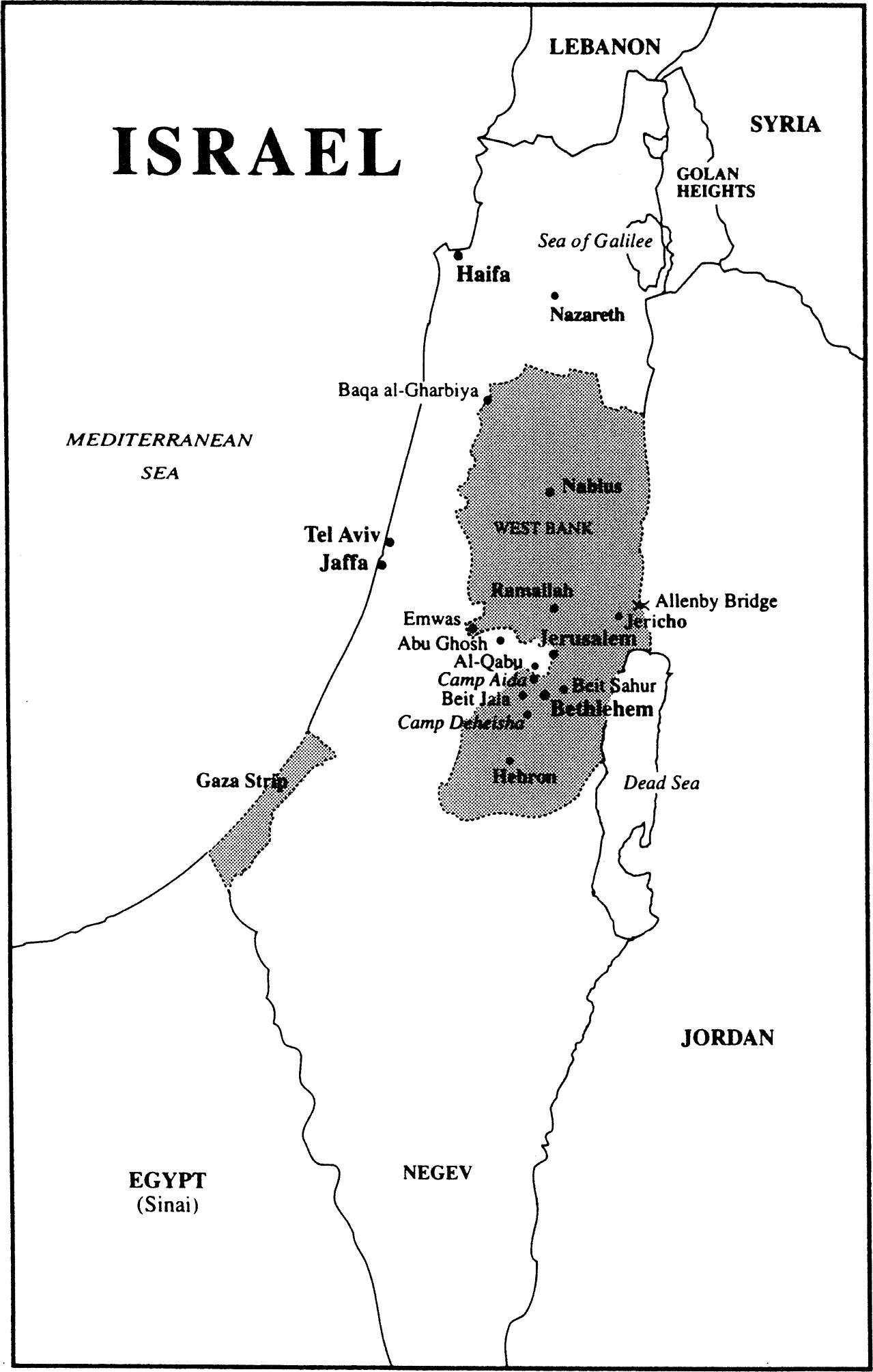
We are, above all, deeply grateful to the six women who agreed to tell us their stories. We are unable to cite their names publiclyin keeping with our promise to thembut we hope that we have made clear to them privately how much we value their courage and candor. We are also thankful to Mufida Abd al-Rahman and Leila Atshan, who first helped us make contact with some of the six women and offered us encouragement and practical suggestions throughout our work with the women.
To Sufyan Kamal, Dafna Ladin-Gorkin, Nuzha Othman, Rifqa Othman, Saliba Sarsar, Avraham and Daniella Stern, and Amnon Toledano we express our appreciation for their helpful comments on the manuscript at various stages along the way. And to the staff at the University of California PressSuzanne Samuel, Nola Burger, and Edith Gladstonewe wish to express our appreciation for their professional expertise in turning the manuscript into a book; and a special thanks to Lynne Withey, who was behind the project from its inception to its completion.
Finally, we want to state here what we have indicated elsewhere in the book, namely, that our working together on this project would have been inconceivable without the support of our families. Their belief in the value of our collaboration has sustained us throughout the work.
Samir Dayal
Three Mothers, Three Daughters offers a glimpse into everyday Palestinian life under Israeli occupation, as the Palestinians see it. It is the product of the collaboration between a Muslim woman, Rafiqa Othman, who lives in an Arab village, and a Jewish male clinical psychologist, Michael Gorkin. This interdisciplinary collaboration itself is of some interest in the field of cultural anthropology, but it also has human interest. A friendship between a Jewish man and an Arab woman is unusual enough, as the authors themselves remark, but their working together as an interviewing team for this book embodies the hope for a shared future for the Israelis and the Palestinians, the hope that the two cultural groups will find it possible to work and live together.
This hope, which informs every page of the book, would surely have been enough to warrant the books republication in the new Cultural Studies series (it was originally published by the University of California Press in 1996). But one could give other reasons. Traditional Muslim rules governing womens participation in public life being what they are, insider accounts of womens daily lives are rare. Yet this book does not stoke the prurient or Orientalist curiosity that has driven many outsiders since the Enlightenment. Rather, the personal accounts of the six women that form the core of the book have a universal appeal. They show, in their unpretentious and modest way, how much Israeli and Palestinian families actually share, vividly recreating the web of small events and intimate family connections that make up the lives of these Palestinians. But they are also shot through with a sense, simultaneously, of the historic significance and the transitional quality of everyday Palestinian reality.
We often hear in Cultural Studies about everyday life. However, it is often precisely the daily experience of ordinary people that is suffocated under the theoretical point or polemic at issue in some expatiation on the meaning of the quotidian. We hear, for instance, about resistance to institutions or to power in the everyday act of insurgent behavior from subaltern groups. We hear about the agonistic process of negotiations between the Israelis and Palestinians. We hear about the problem of the status of Palestinian citizenship. The attempt in most studies that deal with the issues of Palestinian life and politics today (with the exception of Edward Said and a few other writers of his caliber) is often to present a theoretical framework and illustrate it by a few ethnographic or cultural examples. That is all well and good. But few accounts successfully marry the theoretical or academic discourse with the more unruly and frequently messy testimony of personal life, along with its frustrations and even its inconsequentialities.
From this book, however, we learn something about the significant ordinary things that give experience its materiality and immediacy: dress, food, professional and domestic work done by younger and older women. We are given not only the inert clich (often presented in Cultural Studies circles as a first principle in cross-cultural understandings of gender politics) about sex segregation in Muslim societies, but an intimate, lived perspective on the actual range of social interactions between and among girls and women as contrasted with the barriers to social interaction between the sexes. Moreover, we learn about this sanctioned sexual segregation from the perspective of the girls and women themselves, in first person narrative. We learn about the intimate joys of their home life even in hard times and about the hardship of being separated from their homes before they are destroyed or taken by the occupying forces.
Font size:
Interval:
Bookmark:
Similar books «Three mothers, three daughters : Palestinian womens stories»
Look at similar books to Three mothers, three daughters : Palestinian womens stories. We have selected literature similar in name and meaning in the hope of providing readers with more options to find new, interesting, not yet read works.
Discussion, reviews of the book Three mothers, three daughters : Palestinian womens stories and just readers' own opinions. Leave your comments, write what you think about the work, its meaning or the main characters. Specify what exactly you liked and what you didn't like, and why you think so.

